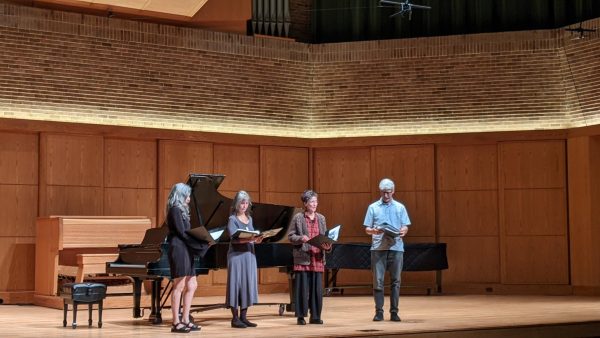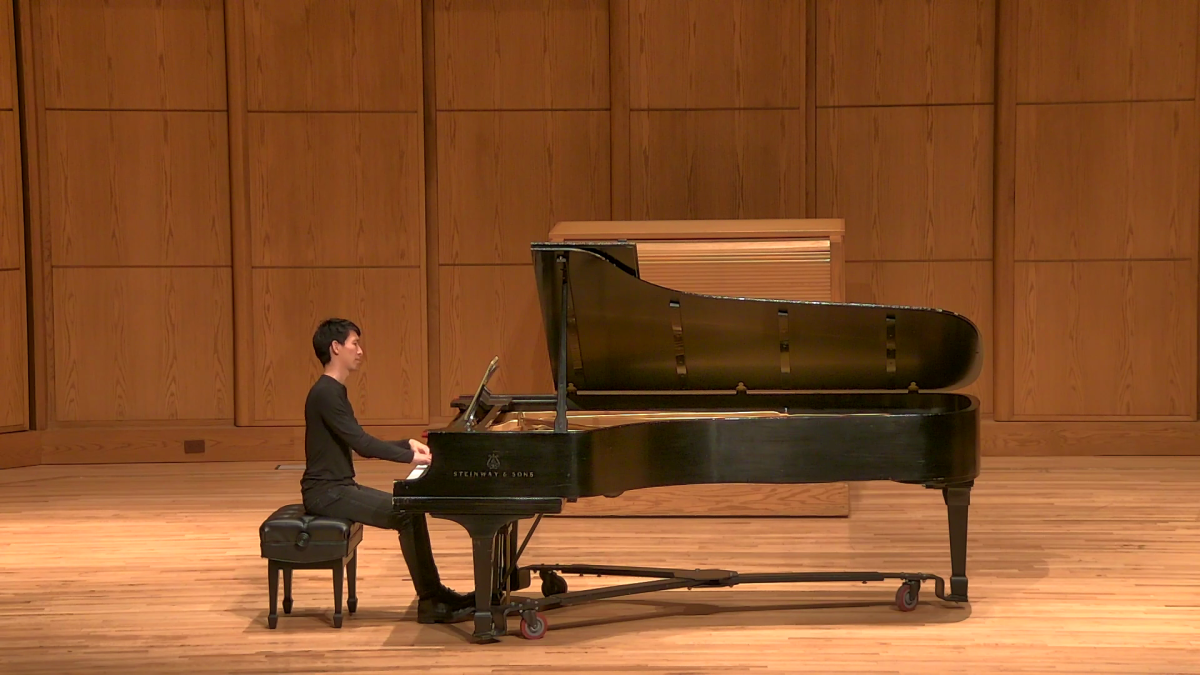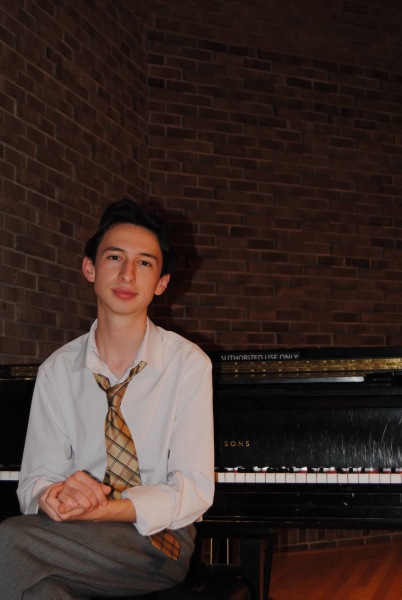While Appalachian music has transcended over the previous decades, its roots are still a rich part of Boone history. Celebrating the upcoming posthumous 100th birthday of Tui St. George Tucker, the Hayes School of Music hosted a symposium on Sept. 12, celebrating her unique contributions to the world of composition.
Tucker was involved in perhaps one of the most defining music history movements in the high country, Camp Catawba. Founded in the 1930s, Camp Catawba was a summer camp for boys that took place near Blowing Rock, North Carolina. After connecting with her future partner Vera Lachmann in New York, Tucker was invited to serve as the camp’s musical director.
Kicking off the symposium, Reeves Shulstad, a professor of Musicology at App State, invited community members to learn about Tucker and the network of women who worked alongside her. Shulstad said, “Tui was an interdisciplinary artist,” magnifying her work as a composer and her collaboration with artists of all mediums.
On Sunday, the Hayes School of Music hosted multiple lecture sessions that included an exploration of Tucker’s historical archives. The first included multiple poems written by John Cage that were recited by Joseph Bathanti, the seventh North Carolina Poet Laureate and professor in the Department of English at App State. Bathanti came to know Tucker through Cage’s writings and quotes Cage saying, “There are two things that do not have to mean anything, one is music and the other is laughter.”

Tucker often found herself interacting with poets and collaborating with them, producing melodies to accompany their writings.
The day continued with multiple self-compositions, performed across various instrument families and time periods. Tucker’s passion for composition inspired many generations of musicians, including Lindsey Jacob, assistant professor of music theory and applied saxophone at UNC Pembroke. Performing an original work on the alto saxophone, Jacob incorporates extended techniques similar to Tucker.
“Some of the wiggling between pitches and things was pretty similar to the effect I was getting on the piece I wrote.”
Jacob’s piece, “Reflection,” is an algorithmic composition that creates a melodramatic atmosphere. With the assistance of computer-generated material, the piece alternates between five generated sections with five improvisatory sections.
Another self composition featured a performance on the horn, performed by award-winning composer Dianah Bianchi, “Please Repeat That.” With the accompaniment of mixed-media recordings and extended techniques, Bianchi finds herself creating, what she calls an “organic and synthetic soundsystem.”
Nicholas Cline, assistant professor of music composition and theory, took time to analyze the construction of various works by Tucker. Cline explores microtonal composition as Tucker is widely known for incorporating these unique chromaticisms into her work. “Using quarter tones as coloristic trills,” Cline says, Tucker is able to create an extension of Baroque ornamentation in the twentieth century.
Drora Bruck, director of the early music track at the Jerusalem Academy of Music and Dance, spoke at the event, saying, “I’m mesmerized by Tui.”
Sharing the rich history of the recorder, Bruck said limited public exposure of the instrument caused it to “never progress the view as an amateur instrument.”
Bruck continues to expand upon the magnificent influence Tucker had on the recorder and education industries. Displaying pictures of manuscripts, Bruck explained the new fingerings system for recorders that Tucker invented.
“She was ahead of her peers and the global recorder scene,” Bruck said.
Ending the weekend honoring Tucker, the Hayes School of Music hosted a concert inducing The Springhouse Farm Choir, alongside a piano premiere.
Thomas Feng, a pianist and DMA candidate at Cornell, performed “Ave Verum Vol. 1-3,” one of Tui’s originally unfinished works. This composition includes an arrangement of the classic hymn “Nearer my God, to Thee,” during which Feng had the audience sing along.
The weekend was filled with insightful prose and performances, all shedding light on the musical excellence of Tucker. Despite only being included in one recorder methods book, Tucker was the first microtonal recorder composer published. Someone who was silenced because of her uniqueness and delicacy, is now applauded for her prevailing contributions to Appalachian music.


